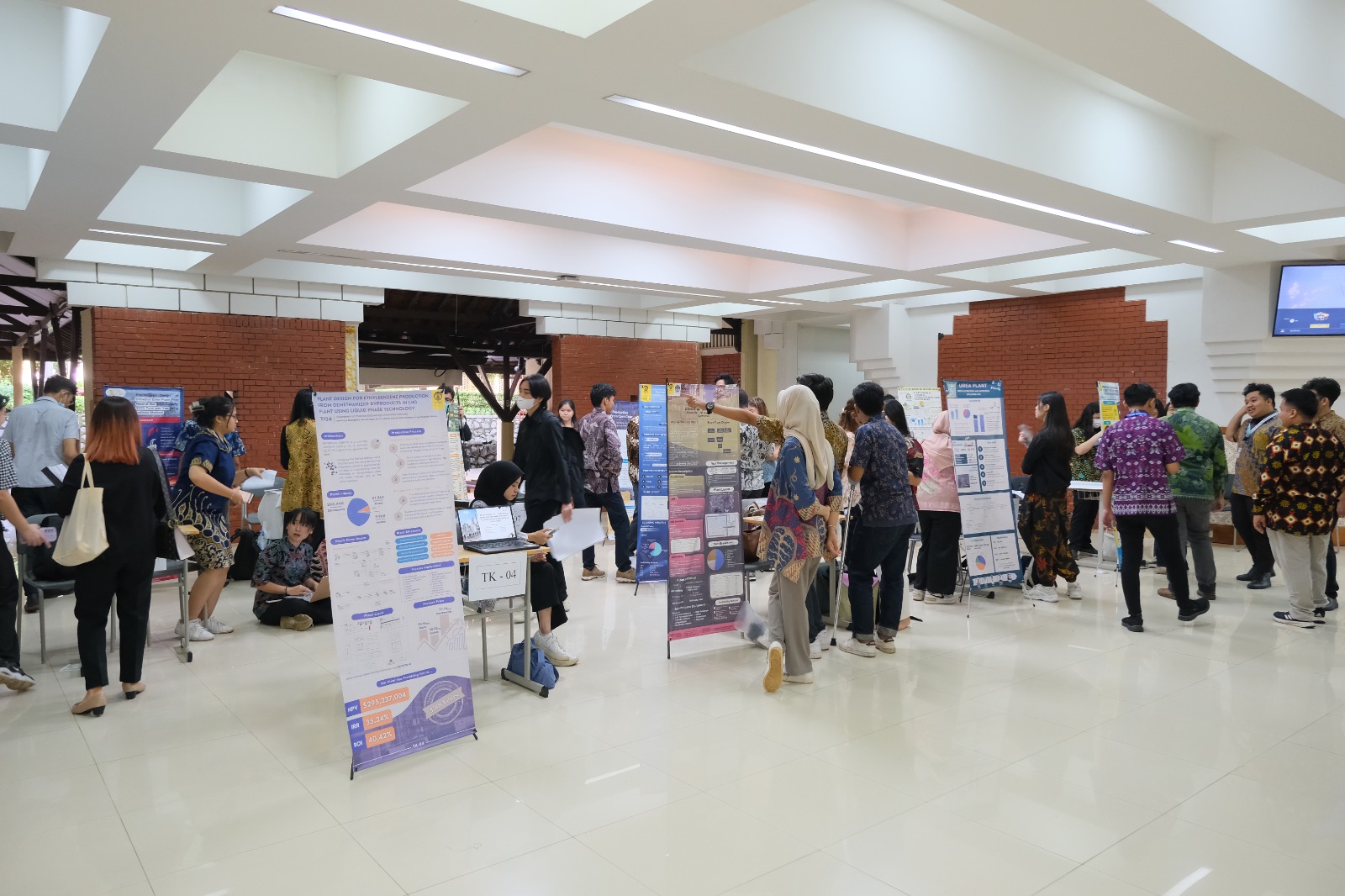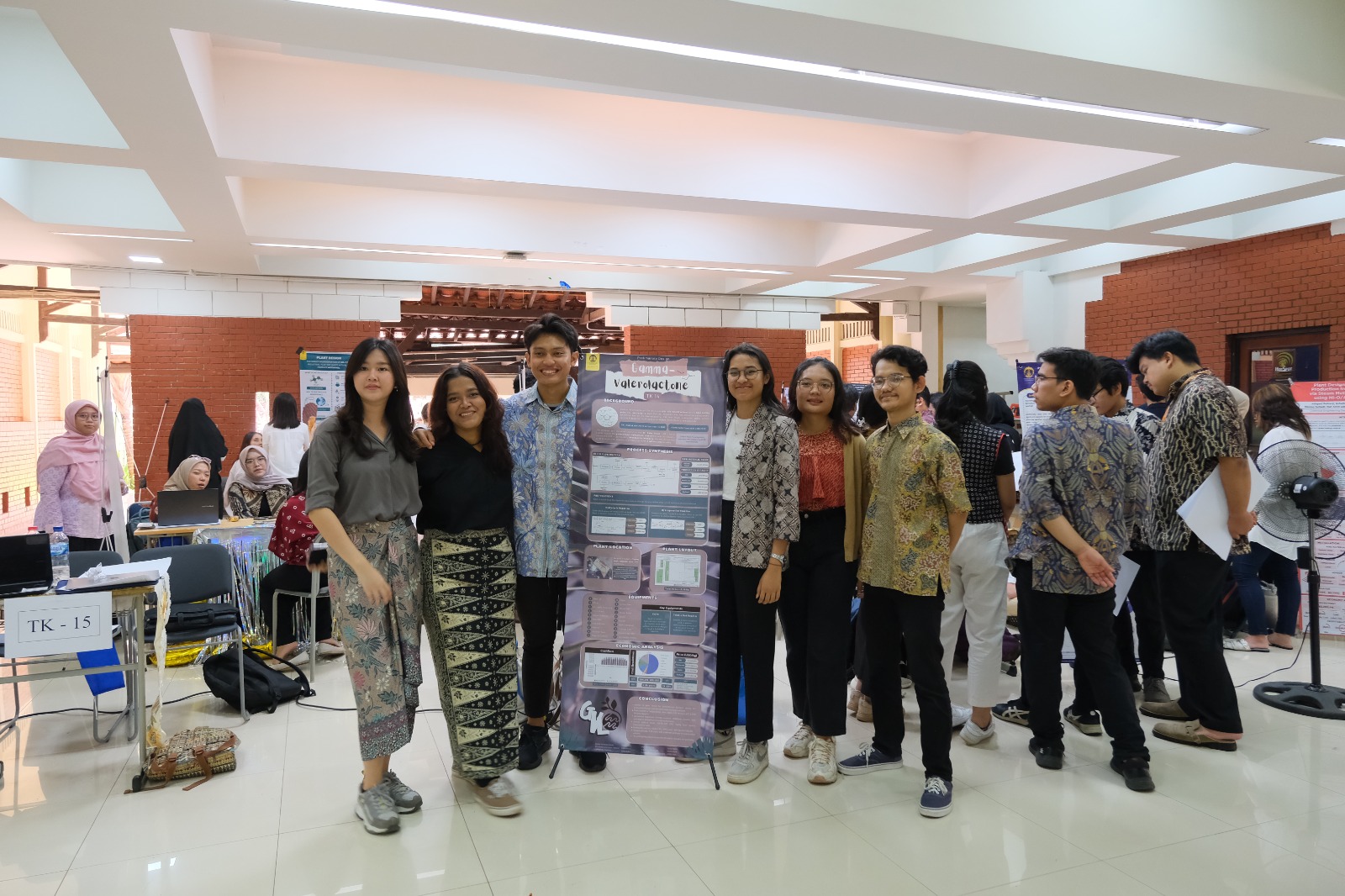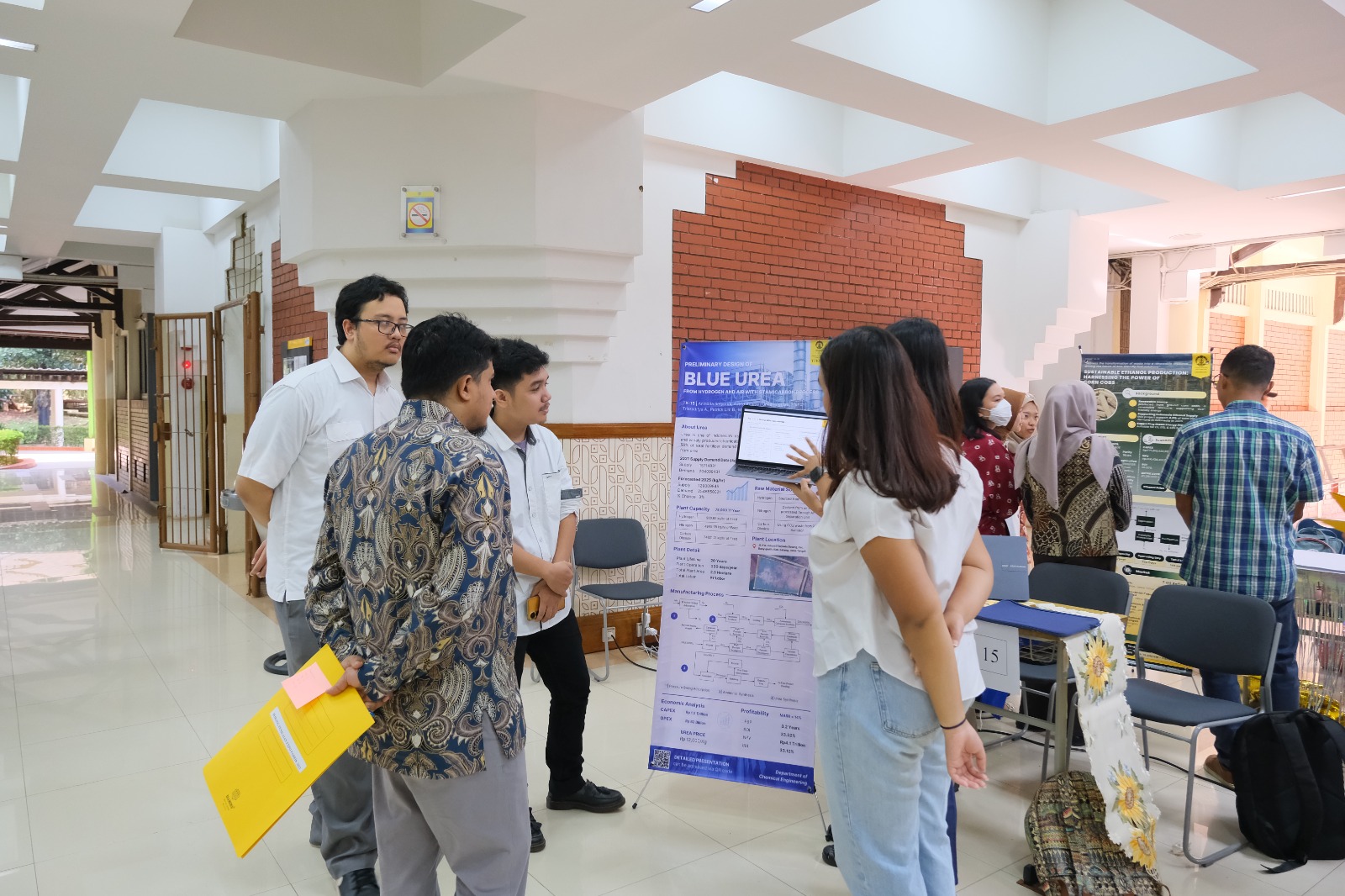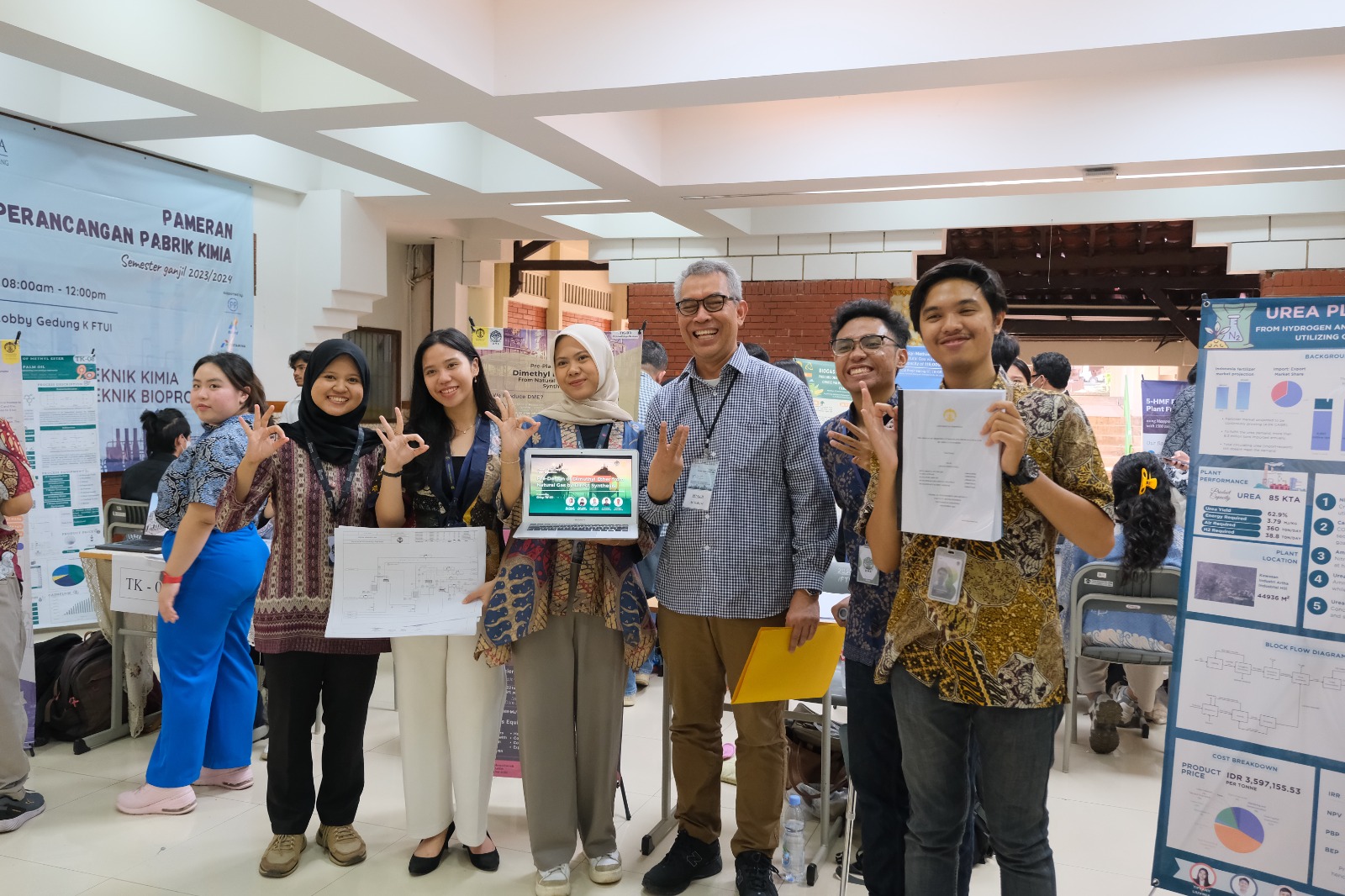The Department of Chemical Engineering (DTK) at the Faculty of Engineering, University of Indonesia (FTUI), held an exhibition of Chemical Engineering Factory Design in the K Building lobby last Thursday (14/12). The exhibition involved students from the 2020 cohort of DTK FTUI, organized into 30 groups.
Additionally, this exhibition served as part of fulfilling the Factory Design course requirements. Focusing on the theme of chemical commodities needs in Indonesia, students were directed to design factories from the ground up, covering technology utilization, process units, process diagrams, production processes, and economic analyses.

One of the groups, TK-19, designed an ethanol factory that utilizes corn cobs as waste. “The reason our group chose this commodity is that we wanted to try to produce sustainable energy. We simulated the processing plant to turn corn cob waste into a more useful product, ethanol,” said Diva, a member of TK-19.
Another group member, Nashwa, shared tips and tricks in the factory design process. There are two important things to emphasize: not forgetting the basic lessons of Chemical Engineering and communicating frequently. She stressed that basic lessons in Chemical Engineering are crucial as they serve as the foundation for factory design, while communication among members creates efficient group dynamics.

“This Factory Design is a capstone course, which covers many courses underneath it. So, with the task of designing a factory, students are expected to be able to design a factory by considering all aspects of factory management that have been studied since the previous semester,” explained Prof. Dr. Ir. Dijan Supramono, M.Sc., one of the lecturers.
In addition to Prof. Dijan, other supervising lecturers were present, including Prof. Dr. rer. nat. Ir. Yuswan Muharam, M.T.; Dr. Tania Surya Utami, S.T., M.T.; Rahma Muthia, S.T., M.Sc., Ph.D.; Dr. Ibnu Maulana Hidayatullah, S.T., M.T.; Dr. Intan Clarissa Sophiana, S.T., M.T.; and Fatimah Azizah Riyadi, B.Eng., M.Sc., Ph.D. The exhibition also featured practitioners from various sectors of the chemical industry to provide direct input to the students.

FTUI Dean, Prof. Dr. Heri Hermansyah, ST., M.Eng., IPU, appreciated the occurrence of this activity, “This activity serves as a platform for students to learn how to accommodate the needs of chemical commodities in Indonesia through the design of chemical and biotechnological factories. Students can apply their theoretical knowledge to practical solutions relevant to the needs of the chemical industry in the country and have the opportunity to receive direct input from practitioners and academics.”
***
Public Communication Office
Faculty of Engineering, University of Indonesia

